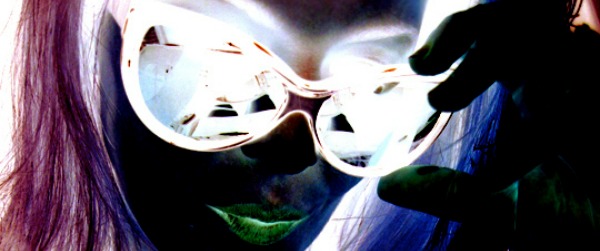You have no items in your cart. Want to get some nice things?
Go shopping
And then summer came. Packs of shirtless boys ran screaming down the docks and threw themselves in the harbour. Skinny girls in bikinis unrolled blankets in the park. Waiters carried stacks of crisp white tablecloths out onto the sidewalk. People left their houses and looked into the sky and blinked at the sun. The Committee for the Prevention of Flooding appeared on TV and said the melt from the mountains would be no worse than expected and the levees would hold.
The Mayor stood on his front stoop and put on his sunglasses. He ran a comb through his hair and practiced his smiles. He put down the top on his car. He drove to City Hall. He picked up the phone on his long wooden desk and called the Committee for the Care of the Summerblind and asked if they were ready. He leaned back in his chair. He put his heels up on the windowsill. He made lazy gestures with his hands as he talked and looked out over the city.
Sometimes people stepped into the street and wondered too long at the sun. They did not cover their eyes. Their vision filled with its brightness. The Committee for the Care of the Summerblind went to its warehouse and carried back armfuls of dark sunglasses and white canes and begging cups. The Summerblind tapped their way along the sidewalks and rattled the change in their cups. Their faces wrung themselves into smiles.
When the clouds stayed away for two weeks the city sat sipping cocktails at the sidewalk cafes and revelled at its luck. Everywhere dark hair was turning light. The subway got a tan. The cops switched to their summer shortsleeves and chased topless sunbathers and laughing teenage day-drinkers along the riverbanks. The Mayor appeared on TV and called for dark awnings to be hung over the windows of City Hall so the box checkers and form duplicators and priority prioritizers would not bake at their desks.
Onscreen, the Mayor smiled. Dimples formed above his bevelled jaw.
Night-time became a relief. People stayed out late in the breeze and the cool air. They talked about the forecast, they could use a little rain. The river swelled with melt. One newspaper listed the historic years for summerblindness and showed it was not yet at a record high. A rival paper pronounced a pandemic in capital letters. The river began to slip down its banks.
A month passed. The mouths of the Summerblind twitched at the edges. They smacked their lips and rolled their tongues until they found words. Their murmurs drifted out of alleys and doorways and the city’s endless corners. If they reached out and felt a lapel or a sleeve they would grab hold and deliver their words directly until kind passers-by banded together and wrenched the victim free. When two of the speaking Summerblind met in the street they shouted and stamped until one or the other collapsed from exhaustion, hunger, thirst.
Teenagers chased the Summerblind down the streets. They stole their begging cups and threw away the change. They climbed to the roofs of harbourside restaurants and bars and jumped into the water. The crowds inside cheered their bravery. The teenagers came up for air and waved at the people in the restaurants. It was not uncommon to be digging into a tray of fried clamstrips and see a body fly past the window.
The Mayor appeared on TV and named his Committee for the Return of the Rain. The Mayor smiled and the reporters laughed. The Committee for the Return of the Rain folded their hands before them and blushed and toed at the carpet.
Air conditioners popped out of every window. The river dropped. Dead fish, boiled and eyeless, crowded swimmers off the beach. The smell crawled up from the coast and the sidewalk cafes emptied. The city awoke some mornings to find Summerblind littering the ground in alleys and parks, lips finally at peace with the infinite. The Committee for the Return of the Rain sent scientists into the mountains where they shot crystals at the sky. The air was cool in the high altitudes and the scientists did not return.
People stepped out of offices and stores and houses and looked up and stood transfixed in the street. The city swept past. It kept its eyes down. It did not look at these people with their split bags of groceries and briefcases dropped open on the sidewalk. The Committee for the Care of the Summerblind went bankrupt. Mothers, fathers, sisters, brothers, daughters, best friends, old flames, sons, cousins, classmates and co-workers were seen tapping their way through the city. They were browned and smiling and talking to themselves. It was not uncommon to see a businessperson drop crying to their knees in the street.
The city simmered. Tanned skin turned to leather. Fights broke out at the supermarket and the courthouse and the opera. The Mayor went on TV and showed his dimples and asked for calm. The Committee for the Return of the Rain asked a group of Indians to come and dance a rain dance but they were booked solid for months. The river ran low. Riots broke out. The police donned helmets and bulletproof vests and, already sweating, went to do battle. The violence raged for hours. It was street to street. The fire department showed up and turned its hoses on the crowd. The crowd cheered and rubbed its bruises. The cops dropped their nightsticks and raised their arms. The firefighters pumped river water into the sky. The streets ran wet and clean. The storm drains filled with blood.
There were reports of bodies floating in the river. More rested in the soft surf at the beach. Sometimes the Summerblind were seen tapping their way onto the harbour bridge. Upstream, the dry riverbed cracked in the sun. The turbines at the hydroelectric station slowed then stopped. The engineers in their white coveralls and hardhats locked the door to the plant and piled into their vehicles and drove to the mountains. The Mayor went on TV and announced electricity would be rationed. His jowls drooped and his skin had spots. The Committee for the Return of the Rain gathered a crowd and stormed city hall. They charged up the marble stairs to the Mayor’s office. Official reports said that the Mayor leapt from his window but there were rumours.
The Committee for the Return of the Rain appeared on TV. They wore serious expressions and banged their fists. They increased power rations. They dissolved all other committees. They sent police commandos into the mountains to bring back the scientists and the engineers, but the commandos did not return.
The city grew desperate for a breeze. Businesspeople jumped from their glass towers. Doctors held hands with nurses and leapt from hospitals. More religious types climbed whatever building brought them close enough to their god that they could wave goodbye. There were jealous mutterings about air traffic controllers, crane operators, city hall workers. Mobs ripped apart the airport. They rushed construction sites. They sacked city hall. The Real Committee for the Return of the Rain appeared on TV. They said electricity rationing was over. They said they would clear out the Summerblind. They said nothing about their predecessors but there were rumours. They sent a militia of seven pickup trucks bristling with firepower to the mountains. Only one man returned. He told of slaughter in the foothills.
The sun blared on. The empty city fizzled and popped. The Summerblind wandered and spoke and slipped one by one by one under the deep blue-green horizon of the sea.

About Adam Roux
Adam Roux is from Massachusetts. He is a graduate of Bates College in Lewiston, Maine. He lives in London.




